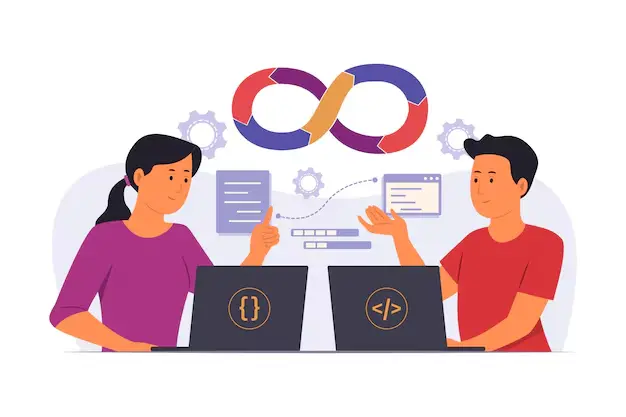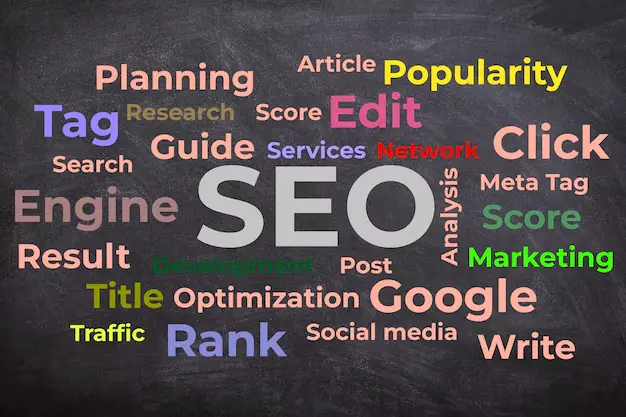
-
Posted By Editorial Staff
-
-
Comments 0
Human Resources (HR) is pivotal in shaping a company’s success and growth. While the HR department in a small business might have a limited amount of resources as larger corporations, its impact is just as significant. Effective HR practices are crucial for ensuring compliance with legal requirements, enhancing employee satisfaction, and fostering a positive work environment.
Meeting HR requirements is not just about adhering to regulations; it’s also about creating a workplace where employees feel valued and motivated. From managing recruitment processes to ensuring fair employment practices, small businesses must navigate a range of HR responsibilities to thrive.
In this blog, we will explore the essential HR requirements that small businesses must adhere to. By understanding and implementing these requirements, you can ensure compliance, support your employees, and build a strong foundation for your business’s success.
Table of Contents
ToggleWhy HR Compliance Matters for Small Businesses
HR compliance is crucial for small businesses for several reasons. Non-compliance with HR requirements for small businesses can lead to significant legal and financial consequences, including fines, penalties, and lawsuits. These risks can be particularly damaging for small businesses, which often operate with limited financial reserves. For instance, failing to comply with wage and hour laws or neglecting to provide mandated benefits can result in costly legal disputes and damage a company’s reputation.
Beyond the legal and financial implications, HR compliance is essential for maintaining employee satisfaction and retention. When employees feel that their rights are respected and that they are working in a fair and compliant environment, their job satisfaction increases. This positive work environment can lead to higher employee retention rates, reducing the costs and disruptions associated with high turnover. Conversely, a lack of compliance can result in a toxic workplace culture, leading to dissatisfaction and high employee turnover.
The Strategic Benefits of Outsourcing HR for Small Businesses

Outsourcing HR functions yields key strategic benefits to small businesses: they can focus more on their core competencies while addressing increasingly complex regulations related to HR matters. Small businesses that outsource the HR function with third-party, experienced HR service providers can tap into expertise and resources that they may otherwise not have access to. This would result in introducing more efficiency in payroll management, benefits administration, employee relations, and legal compliance with reduced chances of costly errors and legal issues.
Besides, outsourcing HR will lead to a much better employee experience because of professional support and smooth processes, which will increase employee satisfaction and retention. Basically, this is the strategic move that would free a small business to use more time and resources in growth and innovation for general business success.
Overview of Key HR Functions
HR functions are diverse and cover various aspects of managing the employee lifecycle. Here are some key HR functions that small businesses must prioritize:
1 – Recruitment and Hiring Processes
Effective recruitment and hiring are fundamental HR functions. Small businesses need to develop clear job descriptions, implement fair hiring practices, and ensure compliance with equal employment opportunity laws. A structured recruitment process helps in attracting qualified candidates and reduces the risk of discrimination claims.
2 – Employee Onboarding and Training
Once employees are hired, a comprehensive onboarding process is essential to integrate them into the company culture and ensure they understand their roles. Training programs should be implemented to equip employees with the necessary skills and knowledge to perform their jobs effectively. For businesses hiring or upskilling employees in technical roles, there are excellent job readiness training programs that combine both hard and soft skills — including communication, personal branding, and interview preparation — to ensure candidates are fully prepared for real-world tech and workplace challenges. Proper onboarding and training can improve employee performance and reduce turnover.
3 – Payroll Management and Benefits Administration
Accurate payroll management is critical to complying with wage and hour laws. Small businesses must ensure timely and accurate payment of wages, including overtime pay where applicable. Additionally, managing employee benefits, such as health insurance and retirement plans, is essential for attracting and retaining talent. Benefits administration should be conducted in accordance with relevant regulations to avoid penalties.
4 – Employee Relations and Conflict Resolution
Maintaining positive employee relations is vital for a harmonious workplace. Small businesses should establish clear policies for addressing employee grievances and conflicts. Effective conflict resolution strategies can prevent disputes from escalating and ensure a collaborative work environment. Providing a platform for employees to voice their concerns and addressing issues promptly can lead to a more engaged and productive workforce.
Legal HR Requirements Every Small Business Must Meet
Understanding and adhering to employment laws and regulations is crucial for small businesses to avoid legal pitfalls and create a fair and safe workplace. Below are some key areas of focus:
Minimum Wage and Overtime Rules
Small businesses must comply with both federal and state minimum wage laws. The federal minimum wage is set by the Fair Labor Standards Act (FLSA), but states may have their own minimum wage laws that can be higher than the federal rate. Employers are required to pay the higher of the two rates. Ensuring compliance with these laws helps prevent wage disputes and potential legal actions.
Overtime Pay Calculation
Overtime pay is another critical area governed by the FLSA. Employees who work more than 40 hours in a workweek must be compensated at a rate of at least one and a half times their regular pay rate. Small businesses need to accurately track employee hours and ensure proper calculation of overtime to comply with these regulations.
Workplace Safety Regulations
The Occupational Safety and Health Administration (OSHA) sets and enforces standards to ensure safe and healthful working conditions. Small businesses are required to comply with OSHA regulations, which may include maintaining proper documentation, providing necessary safety equipment, and conducting regular safety training. Non-compliance can result in fines and increased liability.
Tips for Ensuring Compliance
To ensure compliance with workplace safety regulations, small businesses should:
- Conduct regular safety audits and inspections.
- Develop and implement a comprehensive safety program.
- Provide ongoing training for employees on safety practices and emergency procedures.
- Maintain accurate records of safety incidents and corrective actions taken.
Employee Classification
Correctly classifying workers as either employees or independent contractors is crucial for compliance with tax and labor laws. Employees are entitled to benefits such as minimum wage, overtime pay, and workers’ compensation, while independent contractors are not. Misclassification can lead to significant legal and financial repercussions.
Implications of Misclassification
Misclassifying employees as independent contractors can result in penalties, back wages, and taxes owed to the government. Small businesses need to understand the criteria used by the IRS and other regulatory bodies to determine worker classification. Factors such as the level of control over the worker, the permanency of the relationship, and the nature of the work performed are all considered in this determination.
By adhering to these legal HR requirements, small businesses can ensure compliance, mitigate risks, and foster a fair and safe work environment for their employees.
HR Documentation and Record-Keeping
Effective HR documentation and record-keeping are essential for small businesses to maintain compliance, streamline operations, and support a fair workplace. Proper management of employee records and HR policies helps in mitigating risks and ensuring transparency.
Employee Records
Maintaining comprehensive and organized employee files is crucial for HR management. Essential documents to include are:
- Employment Contracts: Outlining the terms and conditions of employment, job responsibilities, and compensation.
- Tax Forms: Forms like W-4 for tax withholding and I-9 for employment eligibility verification.
- Performance Reviews: Regular evaluations of employee performance, including feedback, goals, and any disciplinary actions.
- Personal Information: Basic personal details, emergency contact information, and any changes in status, such as marital status or dependents.
- Benefits Documentation: Records of employee benefits enrollment, such as health insurance and retirement plans.
- Training Records: Documentation of training completed by the employee, including dates and subjects covered.
Legal Requirements for Record Retention
Compliance with record retention laws is vital to avoid legal issues. Different types of records have varying retention periods:
- Payroll Records: Typically must be kept for at least three years under the Fair Labor Standards Act (FLSA).
- Employment Tax Records: The IRS requires these records to be retained for at least four years after the tax becomes due or is paid, whichever is later.
- I-9 Forms: Must be retained for three years after the date of hire or one year after employment is terminated, whichever is later.
- Personnel Records: Including performance reviews and employment history, should be kept for at least one year after termination.
- Benefit Records: Retain for at least six years, as per the Employee Retirement Income Security Act (ERISA) requirements.
HR Policies and Procedures
An employee handbook is a fundamental tool for communicating company policies, expectations, and procedures to employees. It serves as a reference guide and helps in establishing a consistent approach to HR management. Key benefits include:
- Clarifying Expectations: Clearly defined policies on attendance, conduct, and performance help employees understand what is expected of them.
- Legal Protection: A well-crafted handbook can protect the business in legal disputes by demonstrating that employees were informed of company policies and procedures.
- Consistency: Ensures that all employees are treated equally and fairly, reducing the risk of discrimination claims.
HR Requirements for Hiring and Termination
Effective hiring practices are crucial for small businesses to attract and retain the right talent while ensuring compliance with employment laws. Here are essential aspects to consider:
Best Practices for Job Descriptions
Creating clear and compliant job descriptions is the first step in the hiring process. A well-crafted job description should:
- Include Essential Job Duties: Clearly outline the primary responsibilities and tasks associated with the position.
- Specify Required Qualifications: List the necessary skills, experience, and education required for the role.
- Avoid Discriminatory Language: Ensure the language used does not discriminate against any protected class. Focus on the skills and qualifications needed without implying preferences based on age, gender, race, or other protected characteristics.
- Be Concise and Specific: Avoid vague terms and provide specific details about the job to attract suitable candidates.
Conducting Legally Compliant Interviews
Conducting interviews in compliance with employment laws is crucial to avoid discrimination claims. During the interview process:
- Avoid Prohibited Questions: Do not ask about age, marital status, family planning, religious beliefs, national origin, or disability status. These topics are protected under various employment laws.
- Focus on Job-Related Questions: Ask questions directly related to the candidate’s ability to perform the job duties. For example, inquire about previous work experience, skills, and how they handle job-specific scenarios.
- Implement Standardized Procedures: Use a consistent set of questions and evaluation criteria for all candidates to ensure fairness and reduce bias.
- Document the Process: Keep detailed notes of interviews and decisions to provide a clear record if any hiring decisions are later questioned.
Employee Termination
Managing the termination process carefully is essential to minimize legal risks and maintain a respectful work environment.
Steps to Take Before Termination to Avoid Legal Issues
Before terminating an employee, small businesses should take the following steps to ensure the process is legally compliant:
- Document Performance Issues: Keep records of any performance or conduct issues, including warnings, performance reviews, and improvement plans.
- Conduct Fair Evaluations: Ensure performance evaluations are based on objective criteria and are free from bias.
- Provide Warnings and Opportunities for Improvement: Clearly communicate issues to the employee and provide an opportunity for improvement before deciding on termination.
- Follow Company Policies: Adhere to the company’s disciplinary policies and procedures as outlined in the employee handbook.
- Consult Legal Counsel: If in doubt, consult with legal counsel to ensure the termination complies with all applicable laws and minimizes the risk of legal action.
Providing Severance and Final Pay
When terminating an employee, it’s essential to handle final pay and severance agreements correctly:
- Final Paycheck: Ensure that the final paycheck is issued in accordance with state laws, which may dictate specific timeframes for payment. This should include any unpaid wages, accrued vacation, or other owed compensation.
- Severance Agreements: While not always legally required, severance agreements can provide additional benefits to the employee in exchange for a waiver of claims against the employer. Ensure that any severance agreements are clear, legally compliant, and signed voluntarily by the employee.
- Communicate Clearly: Provide clear communication to the employee regarding their final pay, benefits continuation, and any severance arrangements. This helps to ensure a smooth transition and reduces the risk of misunderstandings or disputes.
By adhering to these HR requirements for hiring and termination, small businesses can navigate the complexities of employment law, attract and retain the right talent, and handle terminations with fairness and legal compliance.
Adapting to Changing HR Requirements
The landscape of HR regulations is constantly evolving, and staying informed about these changes is crucial for small businesses. Continuous education on HR laws helps ensure compliance, avoid legal pitfalls, and maintain a fair and supportive workplace. By keeping up-to-date with the latest legal developments, businesses can adapt their practices proactively rather than reactively, reducing the risk of costly penalties and legal disputes.
Resources for Staying Updated on Legal Changes
To stay informed about HR law updates, small businesses can utilize various resources:
- Professional Organizations: Joining HR associations such as the Society for Human Resource Management (SHRM) or local HR groups provides access to valuable updates, training sessions, and networking opportunities.
- Government Websites: Regularly checking websites like the U.S. Department of Labor (DOL) and Occupational Safety and Health Administration (OSHA) ensures access to the latest regulations and guidelines.
- HR Newsletters and Blogs: Subscribing to HR-focused newsletters, blogs, and legal advisories can provide timely updates on changes in employment law.
- Legal Counsel: Consulting with an employment lawyer or HR consultant can offer personalized advice and insights into new laws and their implications for your business.
- Workshops and Webinars: Attending workshops, webinars, and conferences focused on HR compliance can enhance knowledge and provide practical strategies for implementation.
Also read about What Successful Entrepreneurs in Los Angeles Do to Stay Ahead?
Conclusion
Navigating the complexities of HR requirements is a critical aspect of running a successful small business. By understanding the basics of HR compliance, maintaining accurate documentation, implementing fair hiring and termination practices, and staying informed on ever-changing regulations, small businesses can build a strong foundation for growth and stability. Leveraging HR technology further enhances efficiency, accuracy, and compliance, allowing business owners to focus on their core operations.
Meeting HR requirements is not just about avoiding legal pitfalls; it’s about fostering a positive work environment where employees feel valued and respected. By prioritizing HR best practices, small businesses can create a supportive and compliant workplace that attracts and retains top talent, ultimately driving the business forward.
Incorporating these essential HR strategies will not only ensure legal compliance but also contribute to a more productive, engaged, and satisfied workforce. By staying proactive and adapting to changes in HR regulations, small businesses can thrive in today’s dynamic and competitive landscape.





